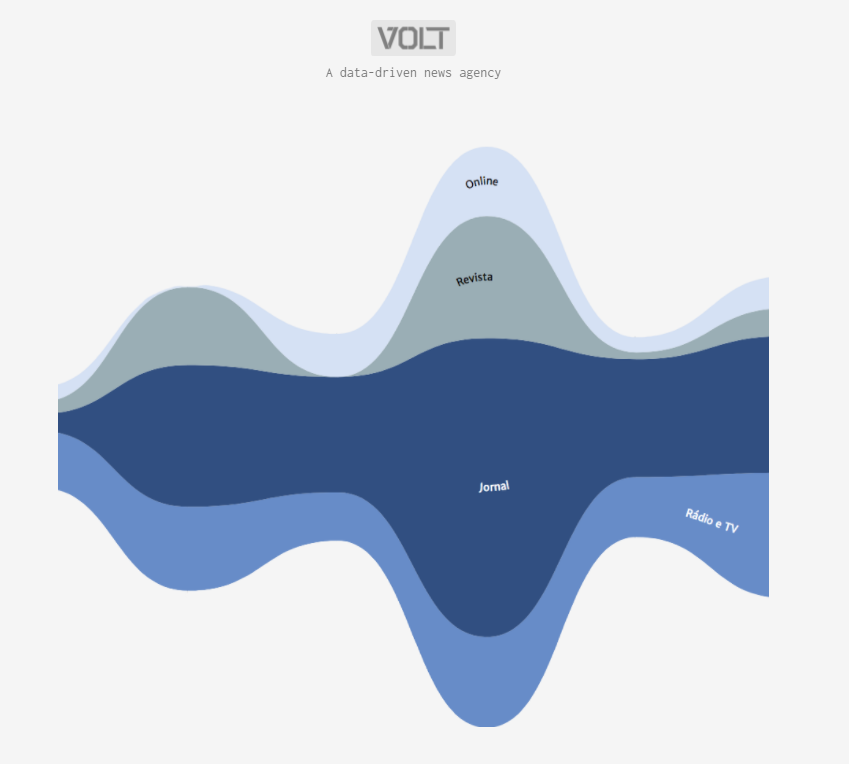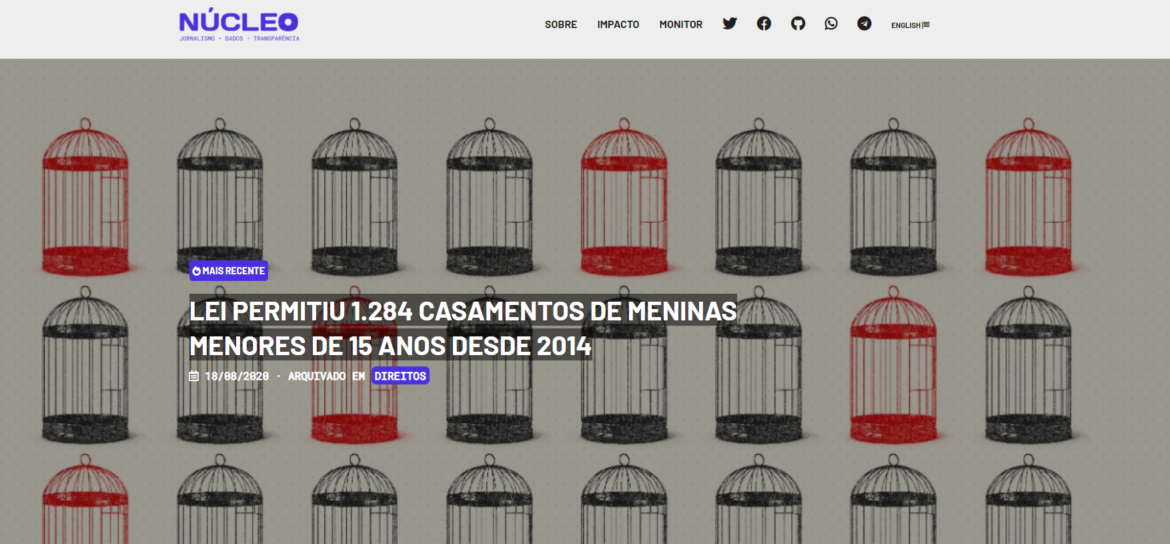

My Favorite Tools with Brazilian Journalist Sérgio Spagnuolo
For our series on journalists’ favorite tools, we spoke with Sérgio Spagnuolo, founder and editor of the Brazilian data journalism agency Volt Data Lab, and a Knight Fellow with the International Center for Journalists.
Spagnuolo was a fellow of the Tow-Knight Center for Entrepreneurial Journalism at City University’s Newmark Graduate School in New York and at the International Center for Journalists’ TruthBuzz program. He has worked as an editor at Aos Fatos, a media startup founded to fight disinformation in Brazil, for whom he continues to be a consultant, and in the data verification unit of Folha de São Paulo, one of Latin America’s leading newspapers. He also serves on the board of directors of GIJN member Abraji, the Brazilian Association of Investigative Journalism.
Volt Data Lab — which he founded in 2014 — is an independent journalism agency focused on investigating, analyzing, and visualizing data. His first major project for the site was Conta dos Passaralhos, which examined the more than 2,000 journalists who lost their jobs in Brazil between 2012 and 2015. His latest publication analyzes the podcast industry in Brazil, where, according to his data, production has boomed since 2005, with 3,400 podcast episodes broadcast in 2018.
Spagnuolo now works as an editor for Núcleo, a project born out of Volt Data Lab that focuses on research conducted with public data. It has published 30 stories since its launch in January 2020, with recent investigations on the cost of repatriating Brazilian citizens during the coronavirus pandemic, indigenous women and domestic violence, and on Brazilian president Jair Bolsonaro’s use of Twitter.
For Núcleo, as with other web projects, Spagnuolo uses Atom.io, an open source code editor, while he hosts his projects on development platform GitHub.
“Núcleo is one of my favorite developments,” he says. “It’s hosted on GitHub, and I use Atom … every post I made, I use Atom. It works like my CMS” (content management system).
“It’s easy to use, it’s fast, and you don’t need to set up a database,” he notes. “It’s what we call a static website, there’s no database behind it, it’s just what you see on the screen. It’s free to host on GitHub. But you do need to be a little bit techie to use it. You have to learn how to code just a bit.”
Here are his other favorite journalism tools:
Standard Notes
“Standard Notes is a place where I hide my most important notes. Stuff like passwords. Instead of having a password manager, I use Standard Notes, because it has a very heavy encryption level and it’s a good tool. And you can sync between several gadgets like cell phones and computers but at the same time it doesn’t have a cloud service, so everything is on your computer or on your phone, and it just syncs directly. It’s very interesting because it’s very safe. It’s kind of a very raw tool, and doesn’t have a lot of resources, but it has my most secure notes. I use it a lot.” Standard Notes is also free.
PlayFair
PlayFair is an open source web application for creating annotated charts. “Mostly I use PlayFair [for graphing data]. It’s good, and it makes simple charts as well, which is the way they usually have to be, simple. I think this is a very cool tool. It’s easy to use. Basically every chart I did within Núcleo is made in PlayFair.”
RStudio
“I use it all the time. Every day. It’s a development environment, where you can bring data to analyze. I like it very much because it’s free and it allows you to explore the R [programming] language much better. There are a lot of features that make it very useful to analyze data. You can deploy a project to the web very easily through RStudio using the Shiny app. It’s just a good environment application for development and data analysis. It’s the perfect tool for that.”
NordVPN
“A VPN (virtual private network) is a very secure way of accessing the internet. Instead of accessing directly from your computer you go to a network, a proxy network, and this network goes to the website you want to go. When you’re investigating and downloading data or scraping data, if you use that you’re masked from the destination service and they cannot block you.”
CrowdTangle
CrowdTangle is among the best known social network tools for monitoring and discovering content. It is available for Facebook, Instagram, and Reddit, and you can use its web platform or the Chrome extension. “It’s a very important tool to check what is happening on Facebook and Instagram. I usually like to see what’s trending, what’s not, and monitor some journalism pages so I know what’s going on. It’s a very useful tool. I don’t have a specific use for it right now, in terms of an investigation, but I go to it a lot to see what’s happening.”
Spagnuolo prefers the native Twitter site over any of the third party sites. “I just like it better. I think that the new Twitter design is really good and you have the same features that you have in a cell phone. It’s just a good interface. You can switch between your accounts very easily, there’s no need to log off. So it’s very similar to the cell phone experience. It’s very useful.”
A Simple Notebook
For Spagnuolo, it is his green Cicero hard-copy notebook. “I have it on me all the time. A lot of ideas I have, I just pull out my notebook and write them down. Then I can go to them later and type them up on my computer and expand on them. But I think that the notebook — the paper notebook — is just a good way for you to not lose ideas. It’s an easier way to get your imagination flowing. It’s very useful for that. For instance, I was looking over my notebooks for ideas for stories I’d like to write. One of these ideas is a story I’m doing now. It was an idea that I had while reading a book with my notebook by my side.”
Other applications he uses daily:
- WhatsApp and Telegram: The main messaging applications in Brazil. Spagnuolo also uses Slack, which is not as widely used in the country.
- Dropbox: “Very handy for non-sensitive stuff and file sharing.”
- iA Writer: A clutter-free writing site whose minimal interface blinds out everything except the line or paragraph you are working on. “It’s my standard application. I use it to write stories, to write longer articles or writing … just about anything.”
 Mariel Lozada is GIJN’s Spanish Associate Editor and a Venezuelan freelance journalist. She has worked in digital journalism for five years, and has reported on health, gender and human rights issues in Latin America. She is part of the La Tercera newsletter, collaborates with Salud con Lupa, and Soy Arepita.
Mariel Lozada is GIJN’s Spanish Associate Editor and a Venezuelan freelance journalist. She has worked in digital journalism for five years, and has reported on health, gender and human rights issues in Latin America. She is part of the La Tercera newsletter, collaborates with Salud con Lupa, and Soy Arepita.












